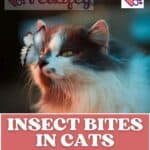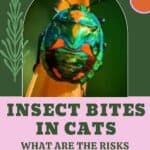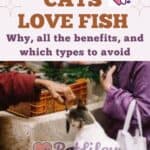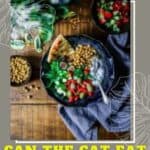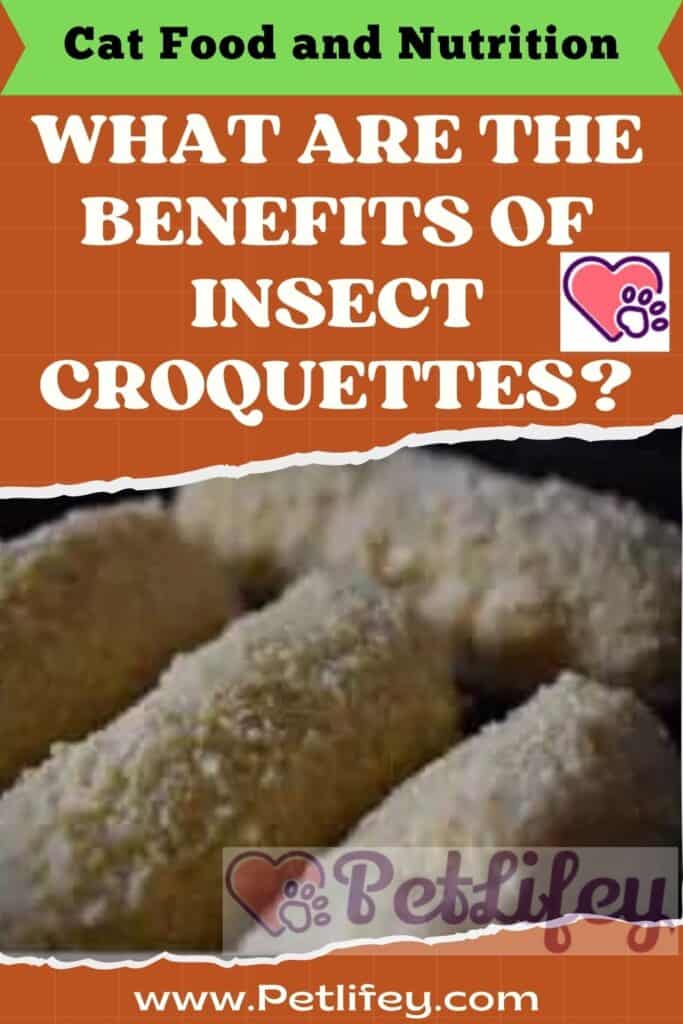
While insect-based food for dogs has become commonplace, cat owners are still struggling to make the switch from insect kibble. And for good reason: the cat is considered a miniature version of its feline cousins who inhabit the savannahs, or even the mountain peaks, and who are exclusively carnivorous. We often forget it, but Kitty is a large predator – among the 100 most aggressive in the world – and it is held responsible for the possible extinction of 33 species (reptiles, birds or even small mammals) now included in the world red list of endangered animals. In short, it’s complicated to accept that kitty can feed exclusively on insects, or even like it to the point of licking their chops.
A necessary choice for intolerant or allergic cats
It’s not easy to spot the signs of a food allergy or intolerance in cats. The most obvious symptoms of an intolerance are digestive disorders, and in general these are caused by lactose derivatives, which are rather poorly tolerated by cats.
Food allergies, on the other hand, can cause a large number of more or less obvious symptoms such as:
- skin problems: itching, redness, scabs or hair loss,
- external otitis,
- digestive disorders: diarrhea, vomiting or irritable bowel syndrome,
- changes in behavior or habits,
- respiratory and neurological disorders.
Cats can also have an allergic reaction to certain types of protein (beef, chicken, fish, dairy products, cereals). In this case, these proteins must be eliminated from their diet one by one, for 12 days each time, in order to determine which type of protein is the cause of the allergy.
It is for this reason that some producers have turned to a source of protein that does not cause allergies: insects.
Benefits of an insect-based diet for cats
Insect kibbles for cats have a high biological value, in other words, they contain a lot of protein – necessary for the well-being of your cat – but it is hyper-digestible protein, which does not cause digestive disorders and which guarantee an excellent nutritional contribution so that your cat is in good health. In general, insect-based kibbles also contain sources of omega-3 and contain little or no grain, which is another potential allergen.
Well-being and ecology in the same bowl

Cat owners who turn to insect-based kibble are often motivated by the well-being of the animal, which shows signs of food allergy or intolerance. However, there is another excellent reason for choosing this kind of food for your hairball: the low environmental impact of producing insects for food use.
Compared to traditional cattle farming, for example, insect farming requires less water, less electricity, less feed, less space and produces less waste.
We therefore let ourselves be tempted by insect-based croquettes to guarantee the health of our cat in the first place, but the ecological motivation often reinforces this choice.
Cats are known to be choosy about kibble, they like it and then change their mind two weeks later or they only want a very specific brand otherwise it’s a clear refusal, without appeal. This is why any change in diet must be done gently, until you find the right combination of tastes and nutrients.


